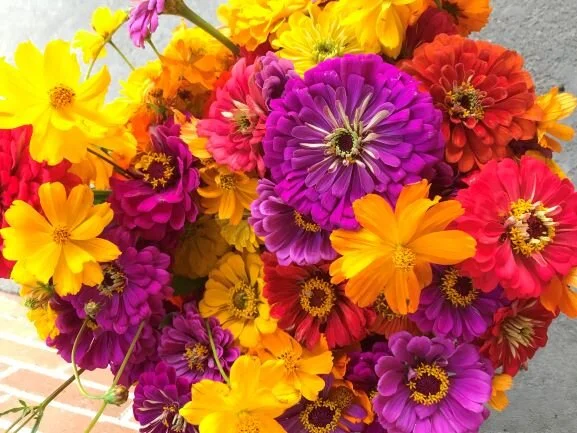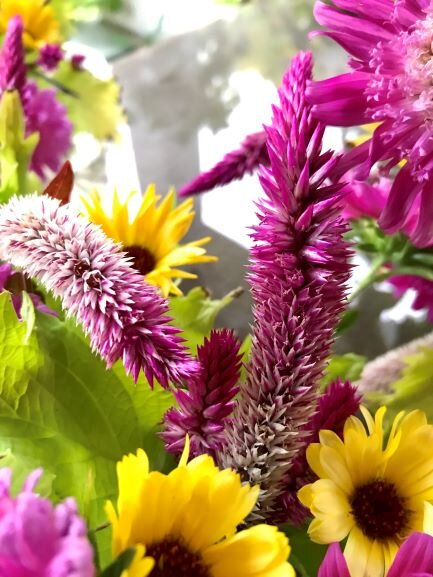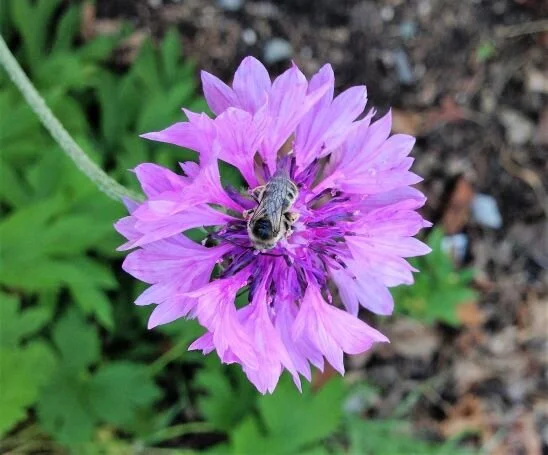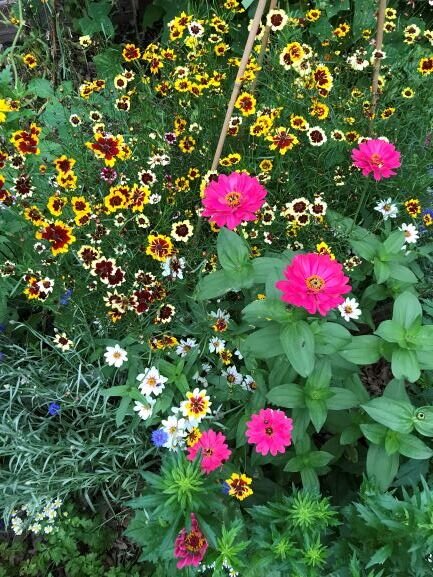Annual flowers - joyful for people & pollinators
Zinnias and Cosmos
Seed distribution of warm-season species continues for #outplanttheoutbreak; Now with the addition of tender annual flowers. For northern zones like 4b, most of the summer blooms we commonly see in nurseries and demonstration gardens are NOT hardy to our climate and are considered warm-season. Over 300 varieties of such plants are listed in the Friends School Plant Sale catalog! Each season, new annual plants are needed to be started (or bought)- which may call into question why bother?
Flamingo feather celosia and calendula
Mostly, folks plant annual flowers because they bring joy to outdoor spaces or even as a cut flower to be shared. Fresh flowers are a language of love and nature appreciation. Not as well known is that annual flowers can also be functional too! Some annual flowering plants you can eat like celosia. Some flowers have medicinal roles like calendula. A lesser understood connection is that annual flowers have a role in supporting pollinators too. Planting for and supporting pollinators have become a priorities for states, cities and home growers, particularly through adding native plants that native insects are well adapted to.
bachelor button flower and a visiting bee
Recent studies are being done at the University of Minnesota that are teasing out information about which annual species have the most to offer to pollinators. Find their top recommendations here. Further, these findings are being extended to study how annual flowers near food crops can increasing yields from gardens. Gardening wisdom has been long passed down that teaches us that insect-pollinated crops do better when there is a bounty of nectar and pollen from flowers planted nearby. Julie Weisenhorn and other researchers at the UMN are looking to see if wind pollinated plants also benefit from bee-attractive plants. The results are still limited, but the significant data obtained do indicate that bell peppers do better with annual flowers nearby.
Interested in growing some annual flowers? Pick up seeds at #OutPlantTheOutbreak cabinets now. April is the time to winter sow tender plants like these and with any successes, you will have seedlings with littles expense. Wintersowing is an alternate method to seed starting that uses less resources and supplies.
garden jumble of pink zinnia, plains coreopsis, blue bachelor button & more



